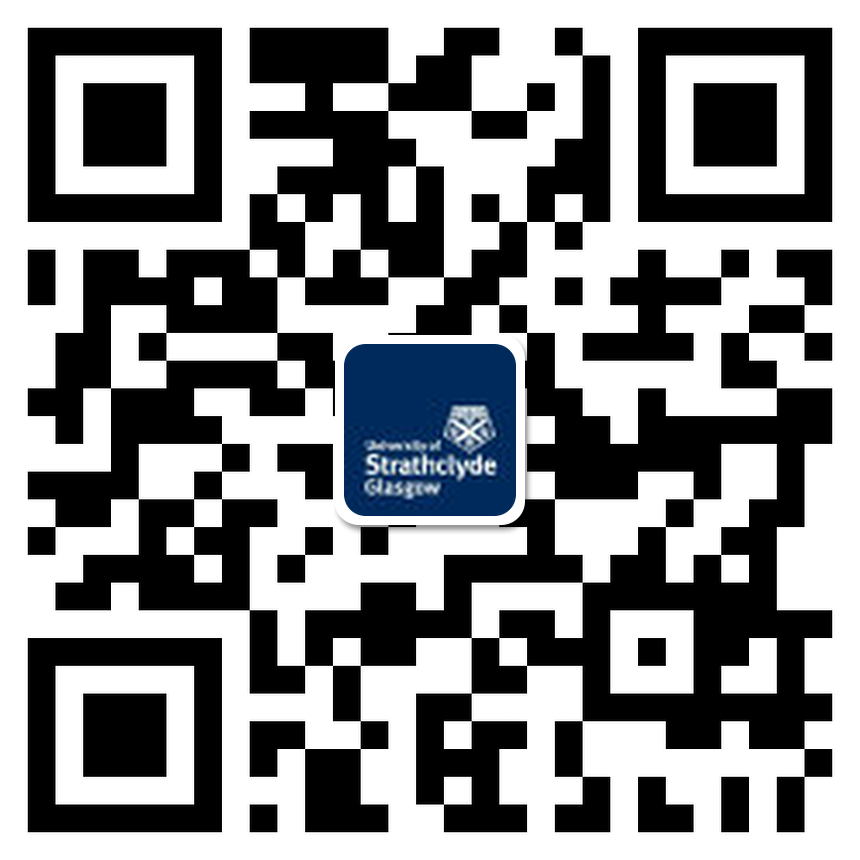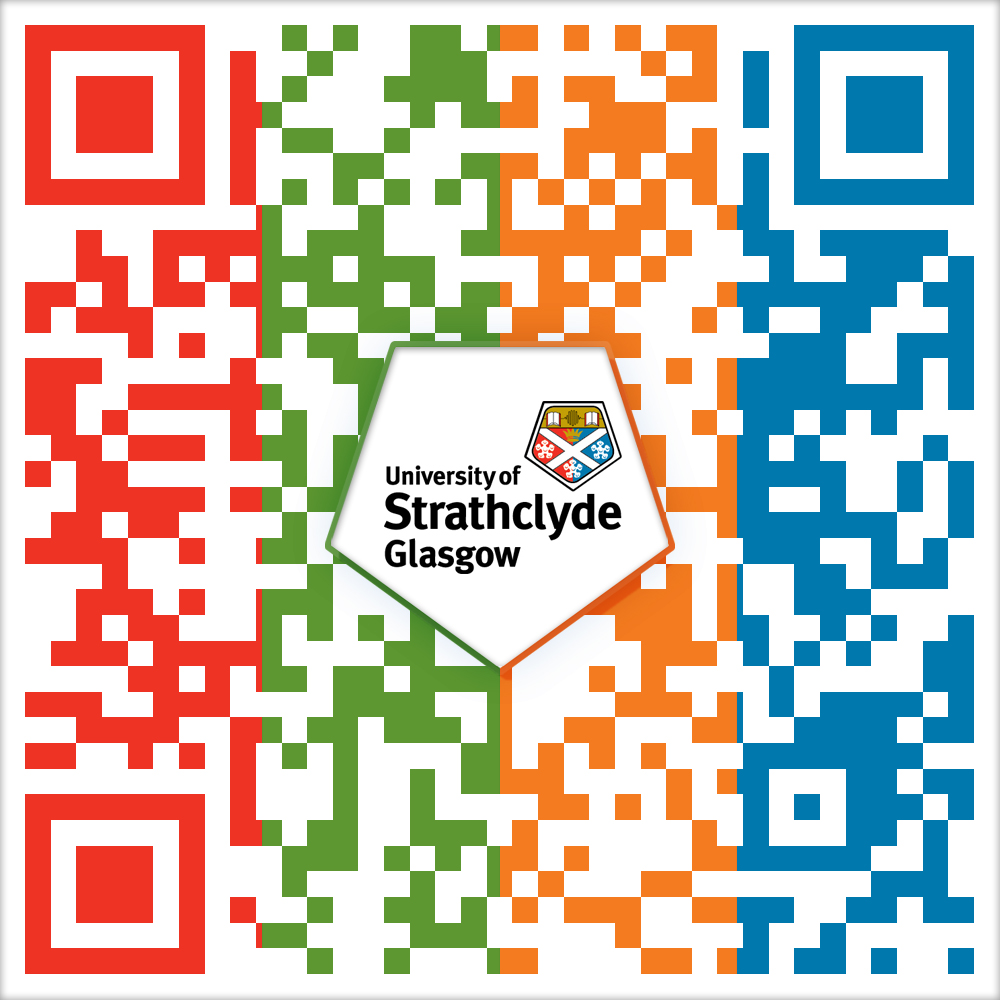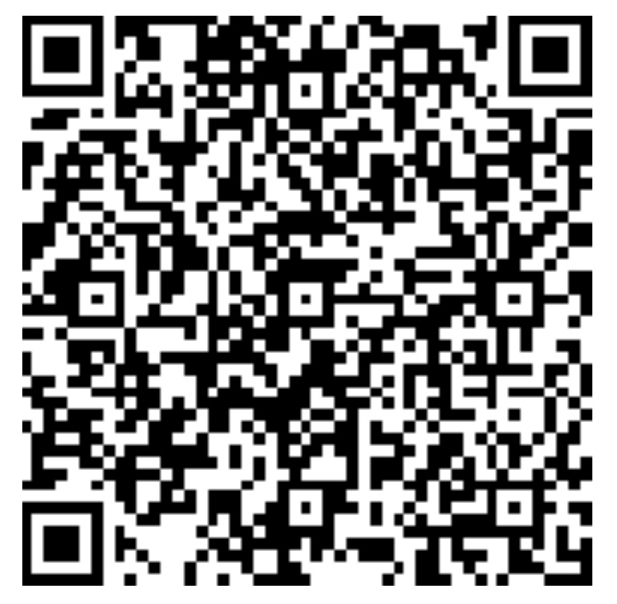BSc Hons Mathematics & Statistics (Donghua University)
ApplyKey facts
Apply: Available only to eligible students from Donghua University
Scholarship: 15% tuition fee scholarship from the university and a 10% tuition fee scholarship from the department
Accreditation:
- Institute of Mathematics and its Applications
- Royal Statistical Society: BSc graduates may qualify for GradStat status
Study with us
- become part of our University community which is home to over 30,000 students from more than 140 countries
- English language classes available before and during your studies
- join Strathclyde in year three and graduate with an Honours bachelor’s degree in Mathematics and Statistics after two years
- develop the knowledge and skills you’ll need to become a successful mathematician and maximise your career options
- your Special Advisor and key contacts during your time studying at Strathclyde will be department staff of Chinese origin who have strong links with many Chinese universities
- benefit from a flexible degree structure that allows you to tailor your studies to your particular interests
The Place of Useful Learning
UK University of the Year
Daily Mail University of the Year Awards 2026
Scottish University of the Year
The Sunday Times' Good University Guide 2026
Why this course
Mathematics is everywhere; from gaming to weather forecasting, cash machines to websites, liquid crystal displays to data analysis.
Statistics is the area of mathematics we use to explore and explain the uncertain world in which we live, whether that’s the latest opinion polls or the manufacture of life-saving drugs.
At Strathclyde, you’ll build on your studies to date at Donghua University, using both mathematics and statistics to solve practical problems, develop your quantitative skills and better understand the world around us. Throughout your studies you'll learn from and be supported by our excellent teaching staff.
After two years of study at Strathclyde and passing the required courses, you'll graduate with an Honours bachelor’s degree in Mathematics and Statistics and a broad range of transferable and highly sought-after skills.
106 students have graduated from this course so far. All of them went onto postgraduate study for either an MSc or PhD. This includes 65 students who have continued onto MSc study at top 10 world universities like Oxford, Cambridge, UCL or Imperial College.


What you'll study
The degree is a four-year programme, with Year 1 and 2 undertaken at Donghua University and Year 3 and 4 at the University of Strathclyde.
At the University of Strathclyde, each year’s curriculum consists of 120 credits including 20 credits from the compulsory module Communicating Mathematics and Statistics and at least 100 credits of other mathematics and statistics modules. Students must study at least 120 credits of statistics modules in Year 3 and 4, and at least 40 credits from Year 4 mathematics modules.
Year 3 has both compulsory and optional modules. You’ll choose from a range of mathematics and statistics modules from one or more of the specialist application areas.
In Year 4, you’ll have the option to take modules including Modelling and Simulation with Applications to Financial Derivatives, Applicable Analysis 3, Statistical Modelling and Analysis, Fluids and Waves and Applied Statistics in Society. In addition to your modules, you'll undertake your Year 4 project which will provide you with the opportunity for more specialised study and will include a written report and an oral presentation. Each year there is a wide range of project topics to choose, with some of these offering a short element of research.
Major projects
In year 4, you’ll have the opportunity to do a specialised study. This will also include a written report and an oral presentation.
Chinese students studying at Strathclyde
Chinese students studying in the Department of Mathematics & Statistics offer a strong support network to new students. The Chinese Students & Scholars Association at Strath Union also offers the opportunity to meet students who study in other departments, through their regular social events and opportunities to go on trips to other areas of Scotland.
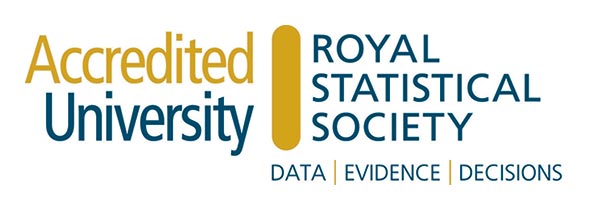
Chat to a student ambassador
Want to know more about what it’s like to be a Science student at the University of Strathclyde? A selection of our current students are here to help!
Our Unibuddy ambassadors can answer all your questions about courses and studying at Strathclyde and offer insight into their experiences of life in Glasgow and Scotland.
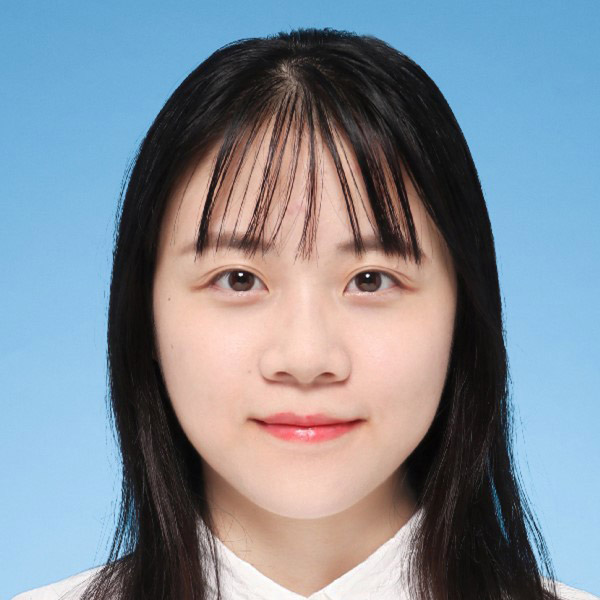
My course combined theoretical concepts of maths and stats with a wide range of application practice, such as in the financial and health areas. I could also discuss maths problems and my understanding of maths with excellent students and professors from all over the world.
Learning & teaching
The following teaching methods are used in Mathematics and Statistics: lectures (using a variety of media including electronic presentations and computer demonstrations), tutorials (small group learning, to further focus on topics covered in lectures), computer laboratories, coursework and projects. You’ll also learn through group work and student presentations.
On completion of the programme, you’ll be able to:
- demonstrate knowledge in the main areas of mathematics
- show an understanding of the principal mathematical and educational theories and a critical understanding of one or more specialised areas
- demonstrate skills in calculation
- develop and evaluate logical arguments, presenting them and their conclusions clearly and accurately
- demonstrate problem solving skills, for example, abstracting the essentials of problems, formulating them mathematically and finding appropriate solutions
- undertake a critical analysis of data and draw conclusions from the data
- demonstrate a range of general skills including IT competency
The University offers four hours per week of free in-sessional English classes throughout the academic year to help students improve their English both for studying and everyday communication.
Assessment
Knowledge, understanding and subject-specific skills are assessed by coursework, assignment, reports, presentations and written examinations.
Why Strathclyde
Strathclyde is a multi-award-winning university.
We offer a flexible, innovative learning environment, where you’ll enjoy a first-class experience. We're currently transforming our campus, with investment set to reach £1 billion by 2025. This includes a new Learning and Teaching hub which will further enhance the learning environment for our students. The campus also has a dedicated sports facility, Strathclyde Sport, which offers a range of sports and wellbeing facilities.
Our campus is located in the city centre of Glasgow, Scotland’s largest and most vibrant city. The National Geographic named Glasgow as one of its 'Best of the World' destinations, while Rough Guide readers voted Glasgow the world’s friendliest city!
Glasgow is also the gateway to Scotland, with an international airport and excellent travel links to explore and visit Scotland’s most scenic locations including the Scottish Highlands and Scotland’s capital city Edinburgh, during your time studying at Strathclyde.
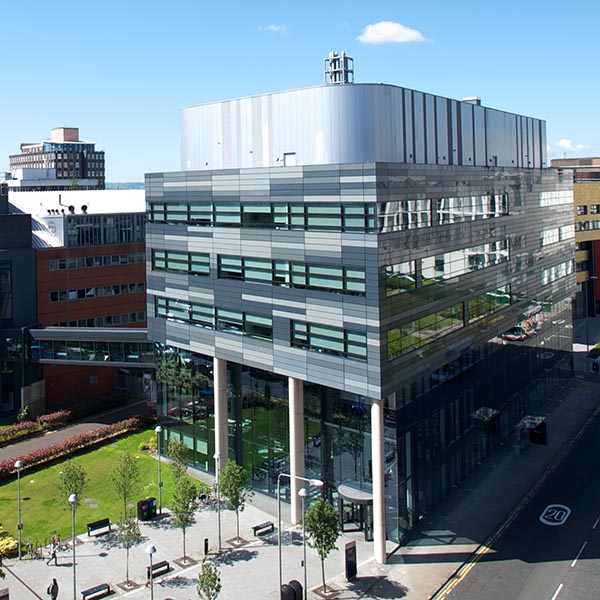
Accommodation
We provide secure accommodation on campus for eligible students. Our accommodation is close to the main University buildings, library, computer labs, sports facilities and the Students’ Union.
Our dedicated Accommodation Services team are located in the campus village and the Student Village Reception is open 24 hours every day, with the experienced team always available to help you.
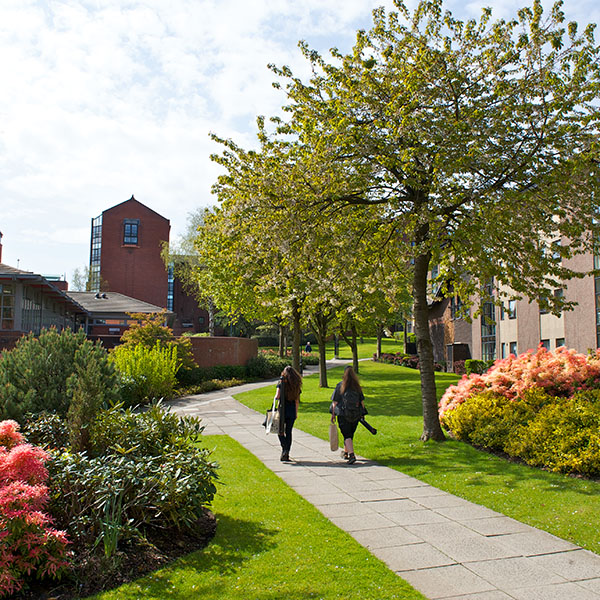
Course content
In addition to compulsory modules, you'll be required to select:
- one optional module in Year 3, to be taken in either Semester 1 or 2
- five optional modules in Year 4
Semester 1
Compulsory modules
Linear Algebra (20 credits)
Here, we’ll present basic algebraic structures, with particular emphasis on those relating to finite dimensional linear spaces and deepen your understanding of linear mappings. We’ll also describe inner product spaces and bilinear forms.
Differential Equations (20 credits)
We'll show you analytical methods for solving ordinary and partial differential equations, so you'll develop an understanding along with technical skills in this area.
Inference and Regression Modelling (20 credits)
This module will:
- review the concepts of probability distributions and how to work with these
- present approaches to parameter estimation, focusing on maximum likelihood estimation, bootstrap estimation, and properties of estimators
- demonstrate hypothesis testing procedures, including classical likelihood ratio tests and computer-based methods for testing parameter values, and goodness-of-fit tests
- introduce and provide understanding of the least squares multiple regression model, general linear model, transformations and variable selection procedures
- illustrate the use of R functions for regression and interpretation of R output
Optional modules
Mechanics of Rigid Bodies and Fluids (20 credits)
This module will:
- convey the generalisation of the mechanics of single-particle systems to many-particle systems
- define the central ideas of a continuum description of material behaviour and explain relevant constraints
- ground students in the basic principles governing three-dimensional motions of rigid bodies
- convey how the ideas of continuum theory are applied to static and inviscid fluids
Semester 2
Compulsory modules
Complex Variables & Integral Transforms (20 credits)
This module will introduce functions of a complex variable and define concepts like continuity, differentiability, analyticity, line integration and singular points. It’ll examine the important properties of such functions and consider some applications of them. For example, conformal mappings and the evaluation of real integrals using the Residue Theorem. We’ll also show you Fourier and Laplace transform methods for solving linear ordinary differential equations and convolution type integral equations.
Stochastics & Financial Econometrics (20 credits)
You’ll learn about the basic concepts of random phenomena evolving in time, from two complementary points of view: modelling and data-driven analysis. We'll present the underlying ideas of simple stochastic processes, time series models, and the associated probability theory with statistical techniques. In addition to this, we'll cover how to apply the methods to financial and economic systems, including modelling, data analysis and forecasting.
Optional modules
Applicable Analysis 2 (20 credits)
We'll introduce you to the basic theory and applications of:
- metric spaces
- normed vector spaces and Banach spaces
- inner product spaces and Hilbert spaces
- bounded linear operators on normed linear spaces
Numerical Analysis (20 credits)
This module will teach you to use numerical algorithms to approximate the solution of problems that can't be solved with pen and paper. It'll develop your skills in performing detailed analysis of the performance of numerical methods and will continue to develop your skills in the implementation of numerical algorithms using R.
Semester 1
Compulsory modules
Communicating Mathematics & Statistics (20 credits)
This module will provide you with experience of the skills required to undertake project work and to communicate the findings in written and oral form. You’ll use a variety of sources like books, journals and the internet.
Optional modules
Modelling & Simulation with Applications to Financial Derivatives (20 credits)
Here, we’ll give you an introduction to ideas in mathematics and statistics that can be used to model real systems. There will be an emphasis on the valuation of financial derivatives. You’ll also learn about deterministic analysis (calculus, differential equations) and stochastic analysis (Brownian motion, birth and death processes). In both cases, in addition to theoretical analysis, appropriate computational algorithms are presented. The first half of the class focuses on general modelling and simulation tools, and the second half looks at the specific application of valuing financial derivatives. This will include the celebrated Black-Scholes theory.
Applicable Analysis 3 (20 credits)
This module will present the main results in Functional Analysis and give an introduction to linear operators on Banach and Hilbert spaces. You'll also study applications to integral and differential equations.
Statistical Modelling & Analysis (20 credits)
This module will provide you with a range of applied statistical techniques that can be used in professional life.
Fluids & Waves (20 credits)
You’ll be introduced to the theory of Newtonian fluids, its application to flow problems, and the dynamics of waves on water and in other contexts.
Finite Element Methods for Boundary Value Problems & Approximation (20 credits)
You'll be presented with the basic theory and practice of finite element methods and polynomial and piecewise polynomial approximation theory.
Semester 2
Compulsory modules
Communicating Mathematics & Statistics (20 credits)
This module will provide you with experience of the skills required to undertake project work and to communicate the findings in written and oral form. You’ll use a variety of sources like books, journals and the internet.
Optional modules
Applied Statistics in Society (20 credits)
You’ll be introduced to a range of modern statistical methods and practices used in industry, commerce and research. You’ll also develop skills in your application and presentation.
Mathematical Biology & Marine Population Modelling (20 credits)
Here, you’ll learn the application of mathematical models to a variety of problems in biology, medicine and ecology. For example, the use of mathematical modelling in biochemical reactions, the application of partial differential equations. The marine population modelling element will introduce the use of difference models to represent population processes through applications to fisheries, and the use of coupled ODE system to represent ecosystems. Practical work will include example class case studies that will explore a real-world application of an ecosystem model.
Mathematical Introduction to Networks (20 credits)
This module will demonstrate the central role network theory plays in mathematical modelling. It'll also show the intimate connection between linear algebra and graph theory and how to use this connection to develop a sound theoretical understanding of network theory. Finally, it'll apply this theory as a tool for revealing structure in networks.
Medical Statistics (20 credits)
You’ll learn new statistical methodology and apply it to real data from medical research studies. There will be an emphasis on how to interpret the statistical results in the context of the medical problems being investigated. This skill is necessary for the application of statistics to medical data and differs from the traditional, standard interpretation of statistical textbook problems.

I was deeply attracted by the positive learning atmosphere, diverse international teaching and beautiful campus environment of the University of Strathclyde.
Entry requirements
| Academic requirements | This degree programme is only available to students from Donghua University, following successful completion of two years of study on the BSc Mathematics or BSc Statistics with a minimum of 70% average. |
|---|---|
| English language requirements | A minimum overall English language proficiency score of IELTS 6.0 (with no score below 5.5) is required. We also accept alternative English language qualifications, please contact us for further information. If you need additional support to meet our English language conditions, you may wish to consider our Pre-sessional courses in English. If you already meet our English language requirements and wish to undertake pre-sessional English classes, you can register for our three-week Online Module 3, which takes place between August and September. This is free of charge if you go on to register on the BSc (Hons) Mathematics and Statistics degree. |
International students
We've a thriving international community with students coming here to study from over 140 countries across the world. Find out all you need to know about studying in Glasgow at Strathclyde and hear from students about their experiences.

Fees & funding
All fees quoted are for full-time courses and per academic year unless stated otherwise.
Fees may be subject to updates to maintain accuracy. Tuition fees will be notified in your offer letter.
All fees are in £ sterling, unless otherwise stated, and may be subject to revision.
Annual revision of fees
Students on programmes of study of more than one year (or studying standalone modules) should be aware that the majority of fees will increase annually.
The University will take a range of factors into account, including, but not limited to, UK inflation, changes in delivery costs and changes in Scottish and/or UK Government funding. Changes in fees will be published on the University website in October each year for the following year of study and any annual increase will be capped at a maximum of 10% per year. This cap will apply to fees from 2026/27 onwards, which will not increase by more than 10% from the previous year for continuing students.
| International | £22,750 |
|---|---|
| Additional costs | Class materials (lecture notes and exercise sheets) for the majority of Mathematics & Statistics classes are available free to download. For some classes, students may need access to a textbook. Textbook costs are typically in the £20 to £60 price range. These prices are dependent on format (e-book, soft or hardback) and whether bought new or second hand. International students may have associated visa and immigration costs. Please see student visa guidance for more information. |
| Scholarships | All students will receive a 15% tuition fee scholarship from the university and a 10% tuition fee scholarship from the department. |
Please note: All fees shown are annual and may be subject to an increase each year. Find out more about fees.

I had a very happy and rewarding time at Strathclyde. The syllabus was well-organised and lecturers were always available to solve our problems. Everything I learned at Strathclyde was useful and highly relevant to my further study in the MSc programme and my job.
Careers
Studying maths helps you develop skills in logical thinking and statistical or strategic knowledge, which are valued by employers across many job sectors. A degree in mathematics is desirable to a wide range of employers who recruit from any degree subject. It's also useful for those considering a more general business career.
Our mathematics graduates enter industries such as manufacturing, the actuarial, accountancy and banking professions, commerce and government, consultancy and education. Many go on to work as financial analysts, accountants, operations analysts, treasury analysts, auditors and management trainees.
Our Careers Service provide careers information, advice and guidance to help our students and graduates achieve their career goals, with support provided to graduates up to 5 years after graduation. The Careers Service team regularly host on-campus seminars and events which provide opportunities for students and graduates to network with employers and industry professionals.
Apply
This degree programme is only available to eligible students from Donghua University, following successful completion of two years of study on the BSc Mathematics or BSc Mathematics and Statistics.
Applications can be submitted from the beginning of March until 31 July 2026.
You'll typically receive your offer of admission within four weeks of applying.
Our dedicated Admissions Team are available to support you every step of the way.
Start date: Sep 2026
(3 year entry)
Glasgow is Scotland's biggest & most cosmopolitan city
Our campus is based right in the very heart of Glasgow. We're in the city centre, next to the Merchant City, both of which are great locations for sightseeing, shopping and socialising alongside your studies.


